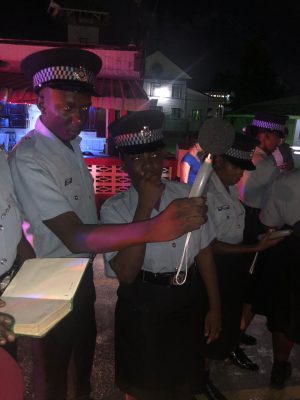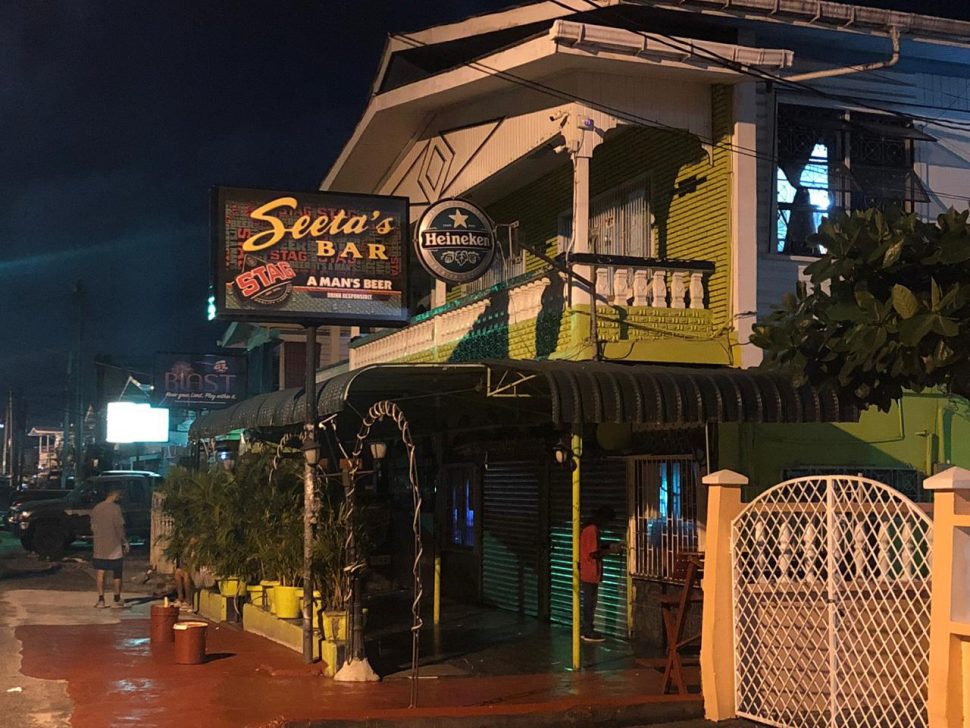Popular bars around Georgetown last night closed unusually early and some turned off their music as ranks from the Guyana Police Force (GPF) carried out noise pollution testing after completing a one-day training programme.
Yesterday morning over 50 ranks were encouraged by Minister of Public Security, Khemraj Ramjattan to utilise the one-day Noise Management Course to “understand the various compartments under which certain rules and regulations apply”, a Department of Public Information (DPI) report said.
After the training, the ranks were taken to test out their equipment last night at various nightspots around the city. They were set to visit Station Street, Kitty, where there are more than four nightspots that residents have complained about for playing loud music.

However, before the ranks and staff of the Environmental Protection Agency (EPA) – who conducted the training course – could spring into action the nightspots, including Seeta’s Bar turned off their music and closed their doors from as early as 8:50 pm, an occurrence which residents said left them speechless.
As a result, the ranks were taken to the Plaisance Line Top where there is a cluster of nightspots that would normally be blaring loud music every Thursday night. However, after the ranks arrived and did their initial tests from some distance away the music was turned off.
The scene went from being polluted with loud music to absolute silence, and even the patrons were not talking loudly.
However the ranks still completed their exercise, which Dillon Chase, an EPA environmental officer, said was only a simulation and that no one caught breaking the rules would be penalised but only warned.
The ranks were also taken through demonstrations and lectured on the correct procedures of taking readings and what must be done to them.
According to DPI’s report, Executive Director of the EPA Aminah McPherson-Damon, who also serves as the Agency’s Legal Corporate Secretary, said that they are aiming to have a population that is environmentally conscious. She also said that despite a sound framework, more work remains, hence the need to equip ranks with the legal framework and technical competence to deal with issues surrounding noise pollution.
The ranks were also given an overview of the EPA’s role in noise management, noise control case studies, noise regulations, effective noise management through the Noise Task Force, evidence-based and enforcement of noise regulations.
While declaring the event open, Ramjattan said that the training facilitates the fact that “a policeman is more than just a policeman” and said that as society becomes more complicated, the roles of police officers will expand depending on the circumstances.
He also reminded the ranks that under the Environmental Protection Act and the Noise Management Regulations persons can be prosecuted. However, the report said, he noted that given the ever-evolving nature of society, the time has come to implement more effective prosecutions such as seizing equipment, revoking licences and increasing fines.
“I want policemen to know… about the laws and how they should be enforced,” the report quoted Ramjattan saying and adding that once all officers employ the increased training opportunities offered there will be law and order in the society.
There were reportedly 417 noise nuisance reports in 2017 and more than 300 for 2018 so far.





